Erectile Dysfunction
Treatments
Welcome to Rex MD. We offer both branded and generic forms of Viagra (sildenafil) and Cialis (tadalafil). Rex MD-affiliated healthcare professionals are ready to recommend a treatment plan they believe will be most effective based on your symptoms and goals. Your clinician will also take any preferences you have into consideration to ensure you get the treatment most suitable for you.
Start your free online visit to see if prescription ED treatment is right for you.
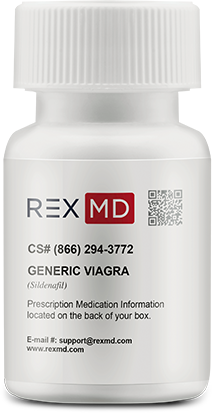

Generic Viagra (Sildenafil)
As low as
$2per dose
- Dose price (Per Dose*)
- 20mg $2
- 50mg
most common $6 - 100mg$6
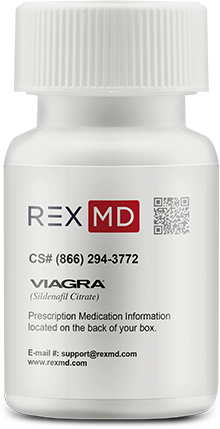

Branded Viagra®
As low as
$96per dose
- Dose price (Per Dose*)
- 50mg
most common $96 - 100mg$96
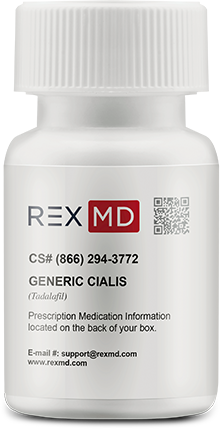

Generic Cialis® (Tadalafil)
As low as
$6per dose
- Dose price (Per Dose*)
- 10mg $6
- 20mg $6
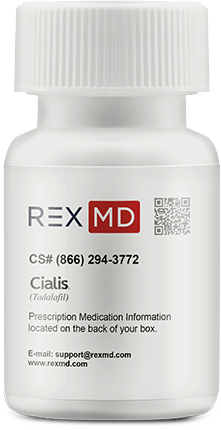

Branded Cialis®
As low as
$29per dose
- Dose price (Per Dose*)
- 10mg $29
- 20mg $29
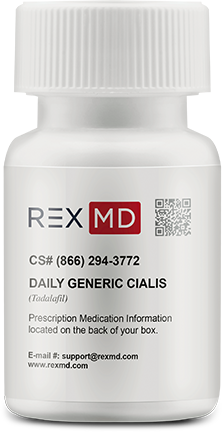

Daily Generic Cialis (Tadalafil)
As low as
$2per dose
- Dose price (Per Dose*)
- 2.5mg $2
- 5mg $2
Weight Management Program
We’re here to help you achieve your weight loss goals. Rex MD pairs access to groundbreaking GLP-1 medications with clinical oversight, metabolic testing, and ongoing support from licensed healthcare providers to help you lose weight and feel healthier overall.
Rex MD stands by your side every step of the way — from your initial dose through every milestone of your weight loss journey. Medication cost not included.

GLP-1 Weight Loss Program
Starting at
$75
- MOST POPULAR GLP-1s
- Zepbound® (tirzepatide)
- Wegovy® (semaglutide)
- Saxenda® (liraglutide)
Testosterone Program
Treat the symptoms of hypogonadism, including low testosterone, quickly and discreetly. Enjoy the convenience and affordability of treatment from the comfort of your home.
Prescription testosterone therapy comes in several different forms. We’ll run specific lab tests and, if medically appropriate, prescribe a medication that meets your needs.

Testosterone Program
- Available Treatments
- Testosterone Cypionate Injection
- Testosterone Gel Topical
- Clomiphene Citrate Oral
- Sermorelin Injection
Hair Loss Treatments
Male pattern baldness accounts for more than 95% of hair loss in men. In fact, by the age of 35, two-thirds of American men will experience some degree of noticeable hair loss. Luckily, we offer hair loss treatments featuring clinically proven medications. Get started today with our hair loss solutions and see if finasteride and/or minoxidil can work for you.
We offer hair loss medication exclusively in quarterly plans for a few key reasons: it takes at least 3 months for these FDA-approved treatments to have an effect, daily use is crucial for progress, and a quarterly plan helps lower your overall treatment costs.
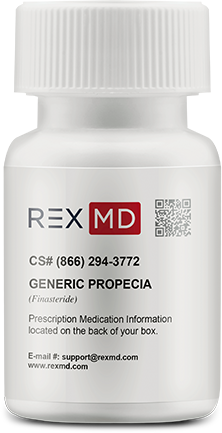

Finasteride
As low as
$17.50per month
- Month price (dose*)
- 3 month $0.67
- 6 months $0.58
Premature Ejaculation Treatments
Rex MD offers proven effective oral prescription medication for PE.
Get your treatment delivered discreetly on a monthly or quarterly basis, with absolutely no commitment required. You can easily cancel after your first order, so come see if prescription or OTC treatment is right for you.
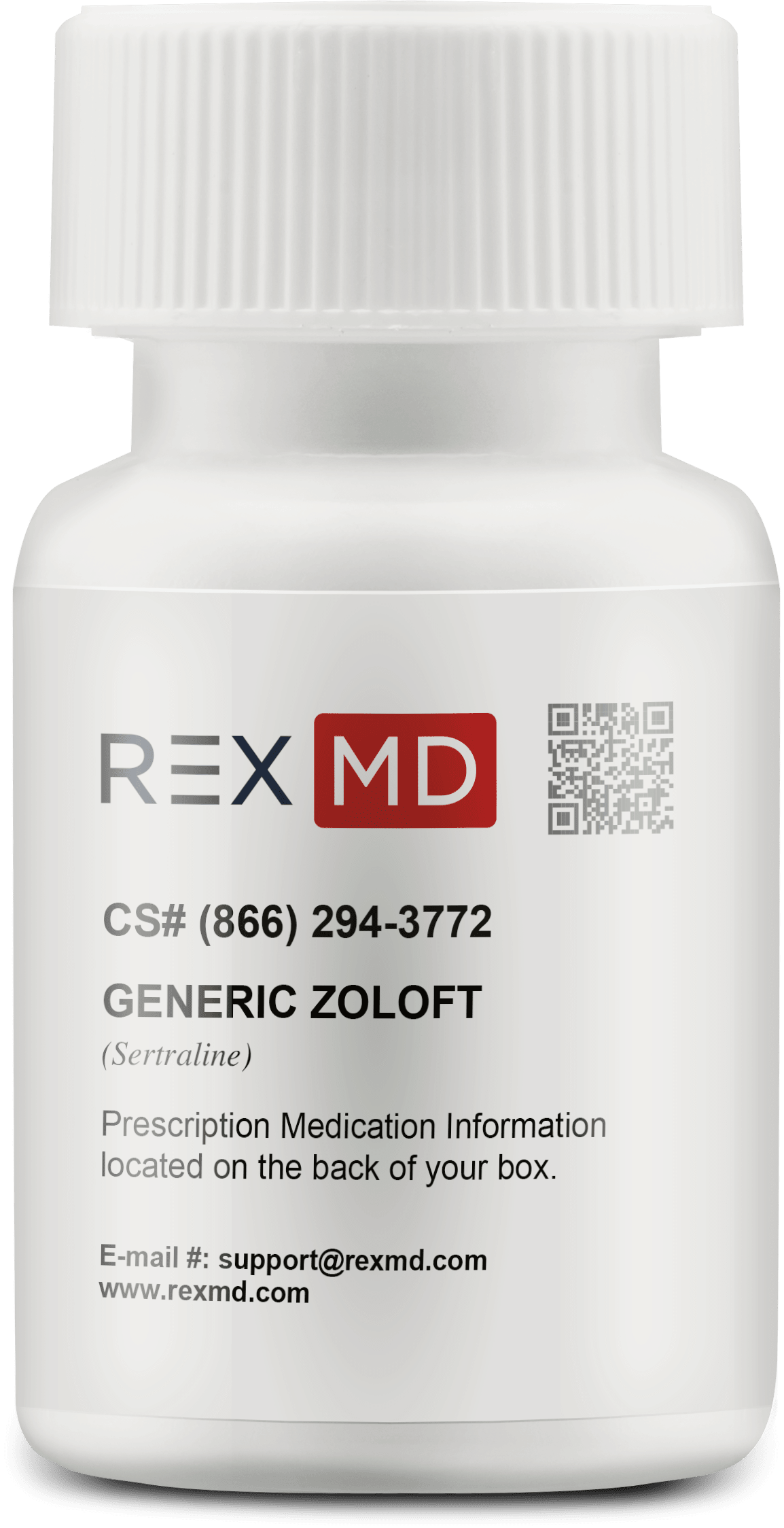
Sertraline
As low as
$27per month
- Supply Price
- 1 month $27
Sleep Treatments
FACT: 1 in 3 men sleep less than 7 hours per night. Getting enough sleep is not a luxury—it is something you need for good health.
Studies have shown that adequate sleep, between 7 and 9 hours for adults, can improve cognition, mood, and immune function. But new research reveals that it’s not just hours of sleep that count toward mental health benefits, it’s the consistency of your sleep.
Get your proven, effective treatment delivered discreetly on a monthly or quarterly basis, and there’s absolutely no commitment required. You can easily cancel after your first order, so come see if a prescription or OTC treatment is right for you.
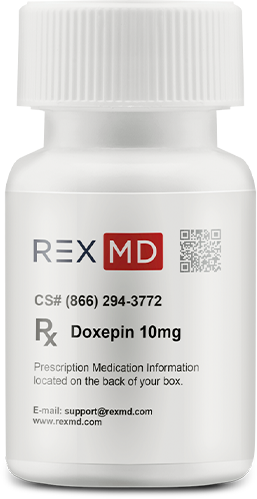
Doxepin
As low as
$1.70per dose
- Dose Price (PER DOSE*)
- 10mg $1.70
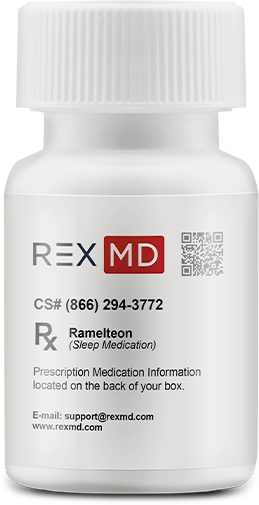
Ramelteon
As low as
$2.11per dose
- Dose Price (PER DOSE*)
- 8mg $2.11
Herpes Treatments
Address your breakouts fast with science. We offer Valacyclovir (generic Valtrex), an antiviral drug approved by the FDA to treat, prevent, and suppress both oral and genital herpes outbreaks.
We offer treatment plans on a per outbreak basis and for off-label suppressive therapy (daily use).
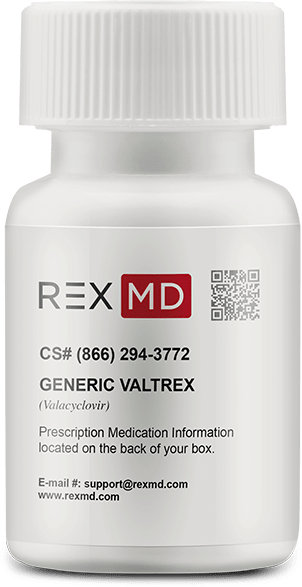
Valacyclovir
As low as
$27per month
- supply Price
- 3 month $27 per month

Welcome to Rex MD.
We're glad you're here.
You see, just being here is a big step for most guys. You probably came for a reason: erectile dysfunction (ED), hair loss, or another concern. Whatever it is, we know that just acknowledging these issues can be challenging ... and sometimes finding solutions can be even harder.
Rex MD was created by men, for men. We’re here to make men’s healthcare easy, affordable, and discreet. Whether you just want to learn more, or you’re ready to speak with a doctor and get the treatment you need, Rex MD can help.
Our virtual medicine platform lets you talk to a board-certified U.S. physician from the comfort of your home. With their professional input, you can receive a prescription that is right for you. Even better, your medication will get shipped right to your door for free. So pull up a chair and bro down. Explore our blog articles. Learn more about our healthcare model. Or get started right away with a free physician consultation.
All the best,
The Rex MD Team












